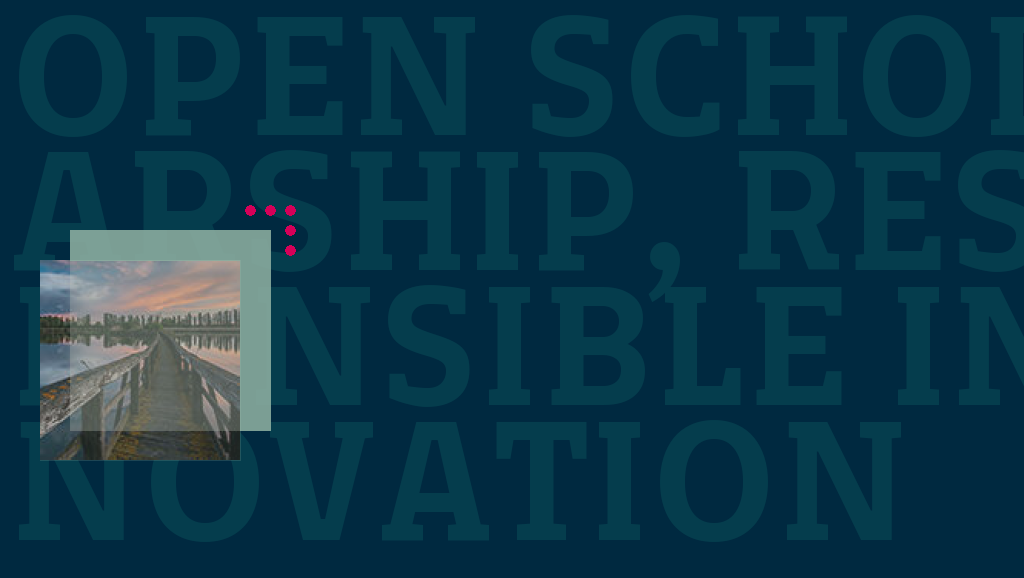The Open Scholarship, Responsible Innovation and Anticipatory Governance workshop was held on 29-30 June at Käte Hamburger Kolleg (KHK), Cultures of Research, RWTH Aachen University. Foreign Scientific Correspondent Jonathan Hankins attended and files the following report.
In his introduction to the workshop, René von Schomberg shared his view that a well-developed open scholarship science system can achieve (almost) all of the aims of Responsible Innovation. Credible, responsive, open and collective, working to standards and anticipatory of outcomes and impact, such a system must move beyond ideas of open publication and on to one of open collaborations producing open data via open methodologies.
Could a system arise within which an amoral scientist ‘does the right thing’ because their institution does the right thing?
Clare Shelley-Egan took up the Open Science (OS) baton, describing it as a confusion of ideas split into several different schools promoting varied criteria and instruments, while funding bodies apply their own specific (and non-standardized) OS policies. Questions abound: what type of openness are they promoting? Who is facilitated and who is disadvantaged by such approaches? How can diversity in policy developments, financial, infrastructural and organizational resources be addressed? What about resistance from de-facto academic cultures that impede such developments and the social dilemma of ‘researchers having to martyr themselves’ in terms of promotion and career due to the currently accepted reward and incentive models.
These challenges require increased scholarly and policy attention, resources and training, in a comprehensive approach that requires awareness of multi-level dynamics and ultimately leads to the questions of what do we really want, participation in policy-making? And is the system actually performing?
As Douglas Robinson noted, such aims require large-scale transformations, driven by mission-oriented policies, a theme taken up by the MOSAIC project.
Mario Pansera presented a call for responsible innovation to embrace radical post and de-growth positions, addressing a host of topics including the importance of the institutionalization of RI dimensions, external political drivers, conflicting institutional logics and decoupling, pointing to the importance of institutional entrepreneurs in bringing change and transition towards a just economy (see the Just2CE website for more).
Why would Vincent Blok be talking about ethics (his own question, not mine)? Because throughout this discussion and the modeling of possible open science systems, one value is given more weight than another. He sees cognition bias in the current conceptualization of OS and RI, with the exclusion of groups that hold radical interpretations, proposing leadership and action towards an agonistic ethos of stakeholder engagement.
Frank Miedema has an interesting book that he drew upon to fire a salvo of statements and raise lots of issues: novelty and quantity predominate in science; short-termism is created through funding regimes; research agendas may not reflect societal needs; universities outsource talent; the legend of the scientific approach; the need to rethink the incentive and rewards system; a required move towards a realistic view of science; evaluation conducted according to strategy, with vision and research aims to the fore and results in narrative form presented through a free choice of preferred indicators.
Anticipatory Governance
Andoni Ibarra explained how Anticipatory Governance (AG) moves away from promises and forecasting based on historical precedents and towards governance based on strategic foresight assessment.
Roberto Poli addresses Anticipatory Governance from the perspective of government and public institutions and administrations, focusing in particular on how administrations adapt and respond to surprises, challenges and disruptive developments. Forecast relies on stability and is unable to integrate change as it projects the past on the future. Foresight on the other hand involves framing within a field of possible futures.
Basic components for Anticipatory Governance include foresight systems, long term windows, feedback loops and an open institutional culture. Training and trust are required as is an understanding of the concept of ‘comander’s intent’. Anticipatory Governance is a new legacy system that faces many obstacles including normative constraints, the power held by established institutions, poor understanding of the complexities involved and current lack of trust and best practices.
Paola Zaratin described framing RI within the future European health research agenda: what can we learn from large multistakeholder health research initiatives? How can we build RRI for better care? Can the Multi-act model help with this challenge?
Participatory medicine and digital transition are two stepping stones, while challenges include costs, environment influences on the ability of healthcare systems to provide care, and inequalities, proposing a five step process towards mission-driven research.
Marianne Hoerlesberger described the IAMRRI project, AM being additive manufacturing, and the SKIN (Stimulating Knowledge Dynamics in Innovation Systems) model, forward looking methodologies that are needed for political and business governance. These approaches open up all future possibilities, offering wholistic thinking based on thinkable rather than desirable futures, from systems analysis via STEEP analysis to future perspectives, an exercise that promotes context and holistic thinking.
She describes 13 key factors including the maturity of printing technologies, trust, reliability, responsibility, sustainability and business models, presenting 4 scenarios, before expanding on one (responsible Europe) and what the innovation process might look like within such a scenario, alongside differences from the others. Recommendations include the need to develop a culture of cooperation in science and research while making future thinking integral to science education. Success criteria include engagement and good design.
Take aways from the final Roundtable discussion: the importance of long term thinking (energy reliance as an example); showcase examples of not being prepared (for example the late lessons from early warnings publication; why has politics not reacted? Promote futures literacy in general education; The importance of learning; don’t underestimate business investment and overestimate importance of governmental funding; longer term funding, as when you change the funding program you lose the learning process that had been built up, if we think about the EU system for example, we find 7 years of one model which then disappears, requiring the construction of a new structure.
We need a system that supports and allows researchers to do the right thing.
——————–
photo: Bridge by Domenico Salvagnin (detail)
——————–
















